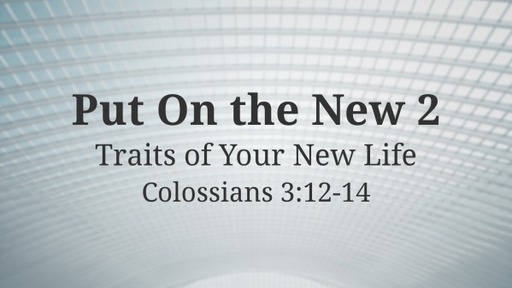PUT OFF THE OLD

I. PUT OFF THE OLD
And the link between the indicative (what has already taken place) and the imperative (what must now be done) could hardly be clearer or more paradoxical: “you have died” (v. 3); therefore, “put to death” (v. 5)! We might well ask why it is necessary to put something to death if it has already died. But this manner of speaking captures beautifully the paradox of living in the experience often described as the “already” and the “not yet.” Something definitive has already been accomplished by God in Christ, but the full realization of it still awaits.
II. WHY WE NEED TO DO IT
There is constant renewal taking place in the believer’s life as he keeps increasing in true knowledge of what God is like. This knowledge leads to progressively being conformed to the image of the Creator, and thus building a life like his.
If we make a practice of putting to death our sensuality and covetousness, laying aside evil attitudes and malignant speech, we will fully experience this astounding removal of barriers in human relationships. The “new self,” lived out, brings the destruction of racial barriers (“Greek or Jew”), religious barriers (“circumcised or uncircumcised”), cultural barriers (“barbarian, Scythian”), and social barriers (“slave or free”). This will bring a resounding affirmation of Tertullian’s exclamation: “See how these Christians love one another!”7 An amazed world will acknowledge that Christians have the “real thing”: “All men will know that you are my disciples if you love one another” (John 13:35).
We must put off:
• Sensuality—“sexual immorality, impurity, lust, evil desires and greed.”
• Evil attitudes—“anger, rage, malice.”
• Evil speech—“slander, filthy language.”
• Deception—“do not lie to each other.”
Why must we put these things off? Because we have:
• A new self “which is being renewed in knowledge in the image of its Creator.”
• New relationships—“Here there is no Greek or Jew … but Christ is all, and is in all.”
